Conference & Seminars Event Organisers in India
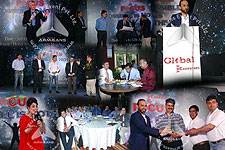 The Power of the Seminar :-
The Power of the Seminar :-
The popularity of conferences and seminar results from the distinct benefit they offer. Attendees prequalify themselves as prospects; if they weren’t interested in the issue being discussed. They wouldn’t come. You get to talk with them face to face, both formally during presentations and informally during breaks, meals, and receptions. As a speaker, you are automatically classified as an expert.
A seminar can be of the following type :
- A half-day seminar on your product and services.
- A one-day or two-day conference, featuring multiple tracks and noted speakers, run by a professional conference organizer on highly technical issues. Attracting participants from across the country.
- A Series of half-day or day seminars offered at several locations across the country to teach the fundamentals of the specific application to those just beginning to work in that area.
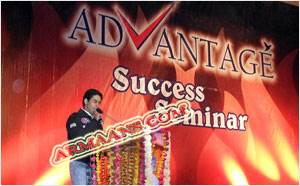 Conference :-
Conference :-
A meeting designed for discussion, consultation, and exchange of information; usually composed of general sessions and smaller group meetings to find facts and solve problems.
Conferences & Meetings today need the expertise to execute in order to create synergy in communication at all levels. We recognize this area of communication through custom-made motivational themes crafted with an extensive survey about the company.
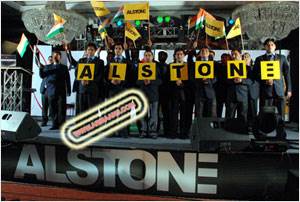 Type of Conferences are :
Type of Conferences are :
- Board meeting
- Sales conference
- Management meeting
- Budget Meeting
- Annual meeting
- Product launch
- Seminar
- Workshop
- General assembly or plenary session
- Training programs
- Team-building events
- Special events
 Identifiable sales force management processes
Identifiable sales force management processes
- Setting targets and objectives based on inputs (usually via a command center)
- Assigning actors responsible for achieving objectives
- Control processes for ensuring objectives are being achieved within
- a given time frame
- a given constrained context (customers and/or markets)
- System management to handle uncertain environments.
The process usually starts from specific sales targets. The command center analyzes the inputs and outputs established from a modeled control process and the sales force. The control process enables the sales force to establish performance standards, measure actual performance, compare measured performance against established standards, and take corrective action. The sales managers adjust their actions based on the overall process.
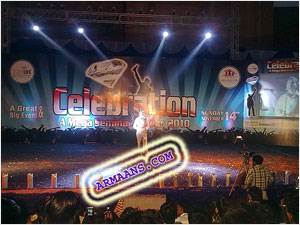 Aside from the control process, the following metrics are implemented:
Aside from the control process, the following metrics are implemented:
- Time management — Accurately measures the tasks and the fraction of time needed for each task.
- Call management — Plan for customer interaction accounts for the fraction of command center reps that comply with the process and have successful calls.
- Opportunity management — If the process is followed correctly then a sales opportunity exists. The fraction of command center reps that use the tools, comply with the objective are all measured.
- Account management — For multiple opportunities with a customer the account is measured by the tools, process, and objectives.
- Territory management — For monitoring the account, the territory is measured by the number of account reps and perspective versus active customers.
- Salesforce management — Process includes training, IT systems, control, coaching, and is shared across several people and departments.
 Pre-Conference:-
Pre-Conference:-
- Venue visits & selection
- Site Selection
- Assist in identifying potential venues to ensure adequate meeting space, quality, amenities, sleeping room pattern, catering requirements, the convenience of travel, and cost.
- Perform site inspections at top 2-3 venues
Assist with contract negotiations - Permissions from local authorities
- Hotels selection and reservation
- Itinerary development
- Conference rooms set-ups
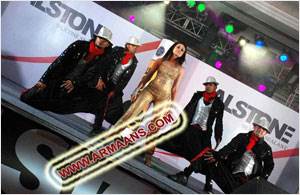 Graphic design: Conference logo, invitations, badges
Graphic design: Conference logo, invitations, badges- Position signs and room locators
- Team Building programmers
- Restaurant selection & reservation
- Menu & wine selection
Entertainment - Welcome gift selection purchase & packaging
- Floral decoration
- Photographer/Videographer hiring
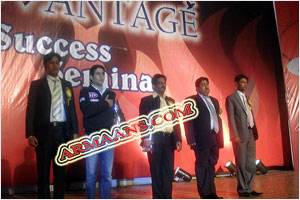 In-meeting feedback – During the meeting, especially multi-day events, feedback from attendees can help meeting makers respond to attendees’ needs and concerns that have surfaced during the course of the meeting. This feedback can be gathered through a variety of means; suggestion and question cards, voice-mail, ARS, meal function table discussions, networking teams, PC-based kiosks, pre-planned debriefing meetings with small groups of selected attendees, etc.
In-meeting feedback – During the meeting, especially multi-day events, feedback from attendees can help meeting makers respond to attendees’ needs and concerns that have surfaced during the course of the meeting. This feedback can be gathered through a variety of means; suggestion and question cards, voice-mail, ARS, meal function table discussions, networking teams, PC-based kiosks, pre-planned debriefing meetings with small groups of selected attendees, etc.
Post-meeting qualitative “pulse” research – A series of confidential interviews and/or the-focus group sessions are often used to identify and define attendees’ satisfaction and dissatisfaction with their meeting experience, their perceptions, attitudes, intentions, and behaviors in key areas of concern and interest to management and their suggestions for improving future meetings.
Post-meeting quantitative research – A tracking survey is conducted within several weeks of the meeting with benchmark questions to measure attendees’ satisfaction levels with various aspects of the meeting, shifts in their understanding, attitudes, perceptions, abilities, intentions, and behaviors, and to learn about their suggestions for future meetings.
Return On Investment (ROI) – This is a specific financial measure that is applied in situations where valid quantitative information, such as sales or distribution figures, customer complaint ratios, etc. are available and can be linked directly to the meeting.
Some research is much better than no research – Although the MPP is a process, each of the individual pre and post-event research services offers significant stand-alone benefits and is often employed individually. Pre-event research can be extremely valuable in assisting meeting designers and organizational leaders to understand the critical needs, desires, and expectations of attendees, while post-event research provides both an understanding of what was accomplished and guidance for follow-through.
For example, a national sales meeting post-event survey for a leading diagnostics health care company examined the effectiveness of a series of technical product and sales training workshops.The company had invested a significant portion of their meeting budget in audience response systems to be used extensively in the workshops. Among other things they wanted to assess was the value of ARS as an educational tool at meetings. Questions on the survey provided answers from each segment of the sales force. In this case, the application of ARS received very high marks.
In another instance, a post-event survey showed that dealers had nominal interest, low confidence of success and little commitment to a new business strategy the manufacturer’s leadership thought they had communicated well about and had gained dealers’ commitment to at the meeting. Findings showed that the seminar on the new business strategy had been poorly conducted, and the dealers perceived that the company wasn’t serious or committed to the strategy.
 Advantages to the Marketing Manager :
Advantages to the Marketing Manager :
- Understanding the economic structure of an industry
- Identifying segments within a market
- Identifying a target market
- Identifying the best customers in place
- Doing marketing research to develop profiles (demographic, psychographic, and behavioral) of core customers
- Understanding competitors and their products
- Developing new products
- Establishing environmental scanning mechanisms to detect opportunities and threats
- Understanding one’s company’s strengths and weaknesses
- Auditing customers’ experience of a brand in
- Developing marketing strategies for each of one’s products using the marketing mix variables of price, product, distribution, and promotion
- Coordinating the sales function with other parts of the promotional mix, such as advertising, sales promotion, public relations, and publicity
- Creating a sustainable competitive advantage
- Understanding where brands should be in the future, and providing an empirical basis to write marketing plans regularly to help get there
- Providing input into feedback systems to help monitor and adjust the process.


















Chief Marketing Manager, ESCORTS
"This is with reference to the service and work of Event Management awarded to you for Escorts Agrovision at Nagpur, Maharashtra. The service and works provided by your company was excellent and to our expectation. Looking forward to yet another challenging and creative point that you now need to explore and work upon."

